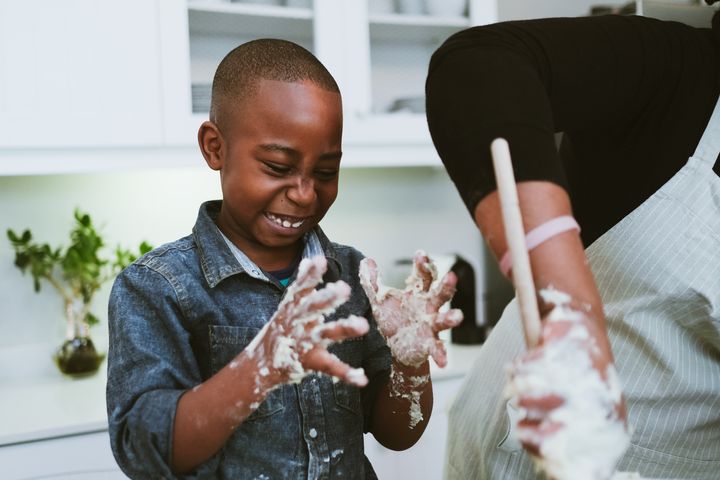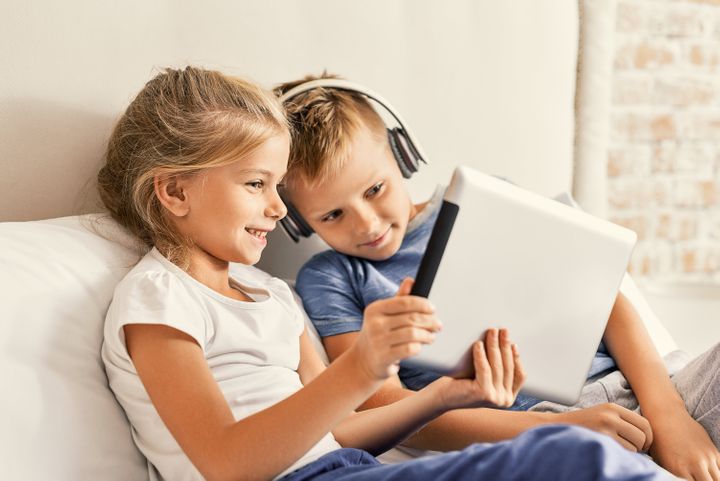News
Kids Handled 2020 Like Champs. Let
Last year was difficult for everyone, and children in particular faced many challenges. Millions of American kids haven’t stepped foot in a classroom since last March, and many have lost loved ones or are facing food insecurity. Kids have been cut off from their friends and favorite activities, and they’ve had to learn to live with profound uncertainty. They’re also likely to be among the last in line for vaccination.
Accordingly, plenty of indicators show that many children are really hurting. Yet they also showed remarkable resilience throughout 2020 — adapting to huge changes thrown their way partly because of poor decisions adults made. Kids have made the best of remote learning, adapted to new COVID-19 public health protocols like wearing masks far better than many adults, and found new ways to play and connect.
“Kids have been so resilient,” said Julie Ross, executive director of Parenting Horizons and author of “Practical Parenting for the 21st Century.” “It’s astonishing, really.”
Most of the factors that made 2020 so hard are still around, but there are things parents can do to help kids have a better 2021. Here are a few.
Let go of worries about kids’ “bad habits.”
Ross said she spent much of last year talking to parents who were worried their children were falling into bad habits, from spending too much time on screens to sleeping until three minutes before their first Zoom class of the day.
Boundaries are essential for children, but Ross said she hopes caregivers will stress less in 2021 about their kids developing pandemic-era habits.
“Many of the habits that children are developing now that their parents are ‘worried’ about are ones that serve them well in this bubble we’re living in,” Ross said. “What concerns me, to tell you the truth, is that because parents are worried, they’re putting pressure on to their kids and not acknowledging how resourceful they are being.”
The Child Mind Institute suggests this simple exercise for parents: ask yourself some basic questions about your child’s well-being, like whether they’re generally eating and sleeping well, whether they’re moving every day and spending time with family, and whether they’re pretty much on top of their schoolwork. If you can answer “yes” to most of those questions, then other habits you may not love — like too much screen time — are probably “not a huge deal.”
Take a hard look at whether we’re unintentionally projecting.
Surveys from the past year definitely suggest that many children are struggling emotionally, but adults generally fared even worse. In one American Academy of Pediatrics survey, nearly 30% of parents said they experienced worsening mental health over the past year, while about 15% said they noticed their children were.
Parents and caregivers need to be really careful about unintentionally projecting their own struggles and anxieties on their children, Ross said. And as hard as it may seem — especially given how widespread parental burnout is and has been over the past year — adults also need to make sure they’re getting the support they themselves need.
“Parents really need to look internally,” Ross said, and figure out if they’re the ones who really need “the oxygen mask” right now.
That may mean taking simple steps to work some very basic self-care into the next 12 months, or it may mean connecting with a mental health professional who can offer support.
Notice the amazing job our kids are doing — and tell them.
Over-praising children has gotten a bad rap, but many experts push back on the idea that children can be spoiled by it. No, empty praise is not good, but children need to feel their parents’ pride.
Ross said that’s particularly true as we continue to slog through the pandemic, and she differentiated between broad, unspecific praise and clearly acknowledging children’s behaviors. Parents might say something like: “I know that this is tough, and I notice that you’re really drawing on your resources to get through it.”
“Acknowledgement is specific, and acknowledgement is not overblown,” Ross said.
The goal is to show children that someone is noticing everything they’re doing to get through this unprecedented time, rather than simply focusing on, say, how they spaced out during their 10:30 a.m. Zoom social studies class.

Prioritize quality time.
Many parents and children have spent more time together over the past 10 months than ever before, but experts repeatedly emphasized the need to set aside time that is about connection and play.
Claire Nicogossian, a clinical psychologist and author of “Mama, You Are Enough: How to Create Calm, Joy and Confidence Within the Chaos of Motherhood,” previously told HuffPost that parents can benefit from tallying up how much time in any given day they’ve actually spent just hanging out with their kids. Then try to add a few minutes more.
“This is not to make you feel more guilty, but give you perspective,” Nicogossian said. “Often, we as parents spend so much time in the supporting roles of parenting, we lose out on the fun, quality-time moments.”
Research really does show that it’s not so much the amount of time parents spend with their kids during the day that matters; it’s whether any of that time is quality time.
Follow public health recommendations.
This last one isn’t specific to parents, but it is essential: In order for children to get back to any level of “normal” in 2021, adults need to come together and follow public health guidelines meant to curb the spread of COVID-19. Yes, vaccination is happening. But there are now new strains of the virus circulating, and experts say everyone must be on guard.
As Dr. Anthony Fauci, the nation’s top infectious disease expert, recently said, we need to collectively “put our foot to the floor and the pedal about making sure we do the public health measures that we talk about all the time.”
“The wearing of masks, the physical distancing, the avoiding crowds and congregate settings — those are the kind of things that will prevent this new strain from spreading even further,” Fauci said.
And those are also the kind of things that will help get our children back into schools, and allow them to just be kids again.
Read more

